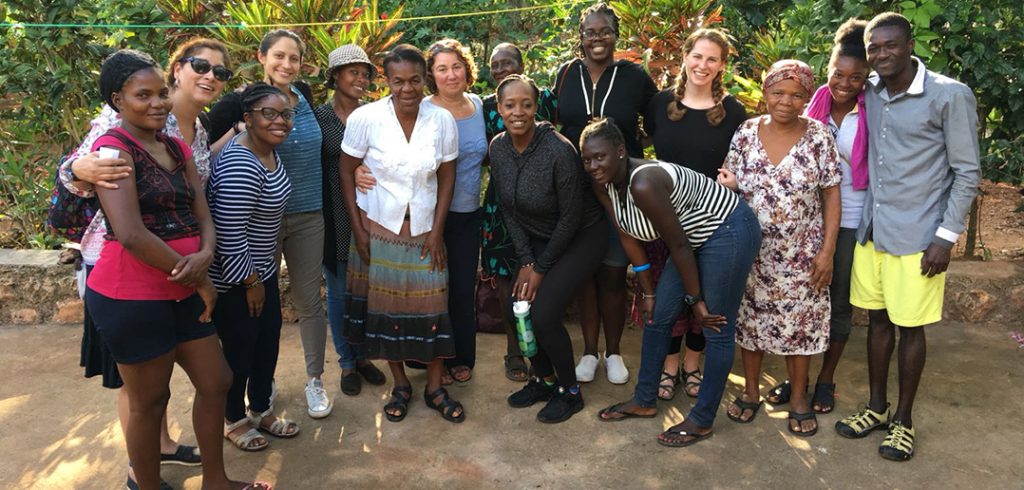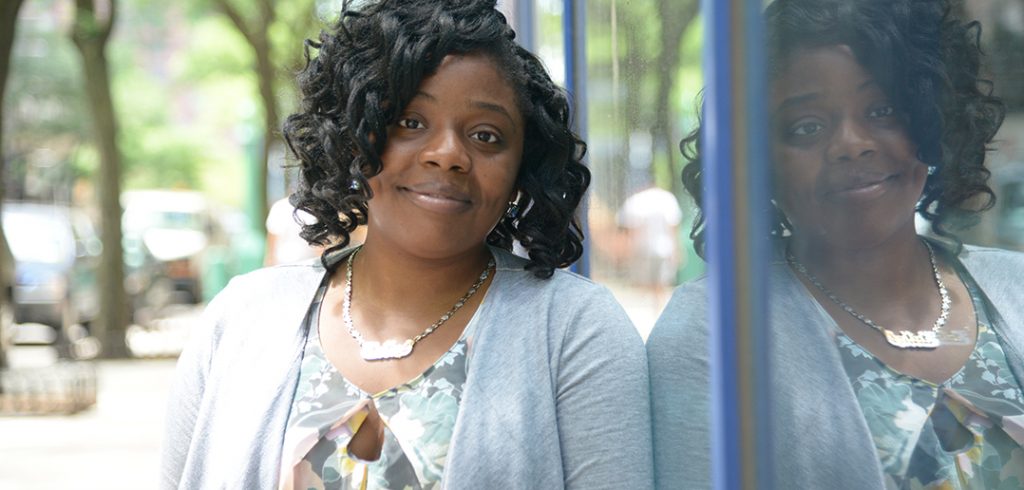“Haitians have different views on mental health, they see it as bringing shame to the family,” she said.
The incident spurred an intense interest in psychology, which Clermont majored in for her bachelor’s degree. But her family’s cultural viewpoint kept nagging at her. As a first generation American, she had grown accustomed to the viewpoint that psychology was a science. How could she bring this profession to the culture and to the country her parents were born?
“The failure of Haitians to acknowledge mental health is real, and that causes a failure to seek mental health resources,” she said. “I came to Fordham to research this topic and to educate my Haitian community in Elizabeth, New Jersey.”
Clermont is now a Master of Social Work candidate at the Graduate School of Social Service (GSS). She said she was attracted to Fordham after researching different schools and learning that GSS’s study abroad program included trips to Haiti, headed by Marciana Popescu, Ph.D., associate professor of social work.
“I speak Creole, so I thought I could be a great asset for the program,” said Clermont. “Dr. Popescu is an amazing professor, I was attracted to Fordham University because of her work connecting social work with international interest. If it wasn’t for her I would still be searching for ways to incorporate the two.”
Indeed, Clermont brings more than just Creole to the program, she brings the awareness of someone straddling both U.S. and Haitian cultures.
“There are times where I feel like I’m not Haitian enough and times I feel like I’m not American enough, I feel in between and I want to explore that more,” she said. “When I grew up, mental health was not a topic we’d talk about at home, but that just made me want to go into social work, it’s the reason why I’m pursuing this career.”
During her visit to Haiti last March, Clermont said that she encountered a variety of community organizations and was very impressed with the strength of the women she encountered. Having visited the country as a child, she said she was also familiar with the belief systems that helped them through trying times, such as Voodoo (known in Haiti as Vodou).
“In Haiti, there are more 60,000 Voodoo priests and about 200 mental health professionals,” she said.
She added that she’s interested in researching how to incorporate traditional beliefs with mental health care.
“By using the cultural beliefs of Voodoo and combining them with western, evidence-based therapies, we may be able to help more people,” she said. “Growing up in the U.S., I thought of Voodoo as negative, but after going on this trip I began to realize that this is who they are, it’s part of their culture.”
Clermont said that she’s found very little literature on the subject and she is unsure that there are Voodoo priests willing work with mental health workers, though she has identified an organization trying to bridge the two groups.
“It’s going to be a work in progress,” she said. “I mentioned it to a friend in Haiti and he just started laughing because he can’t picture the two together.”
Regardless, she said mental health advocates need to familiarize themselves with the way Haitians view the world if they’re going to help them.
“This could be a way to let Haitians know that there are other options out there and mental health is real,” she said.


